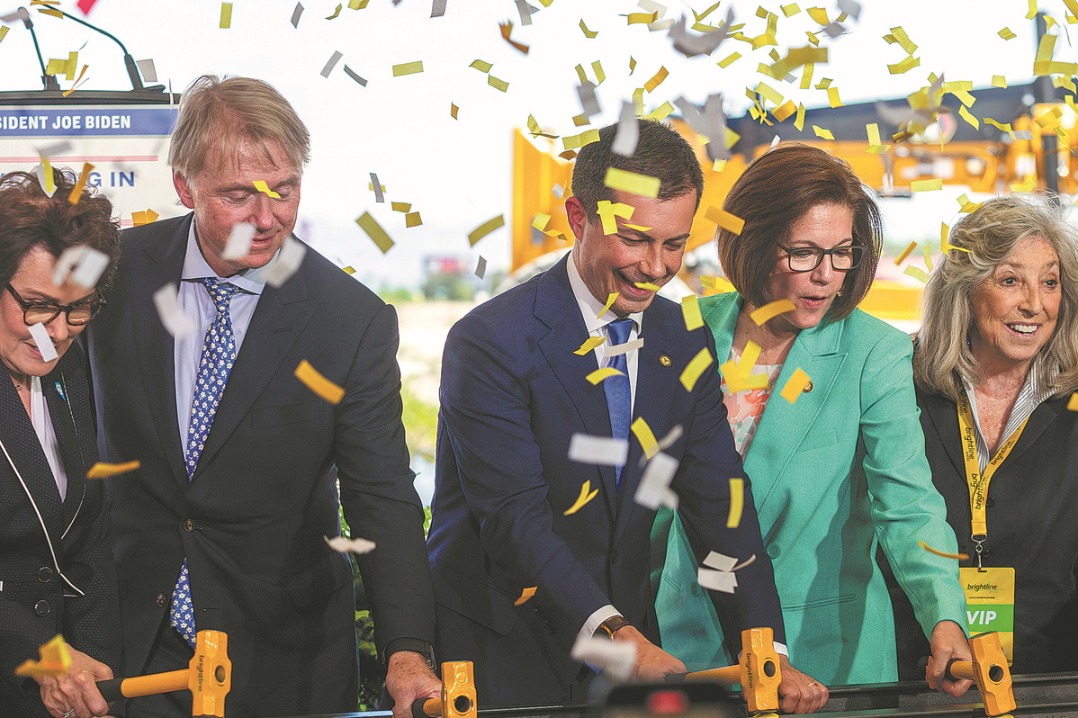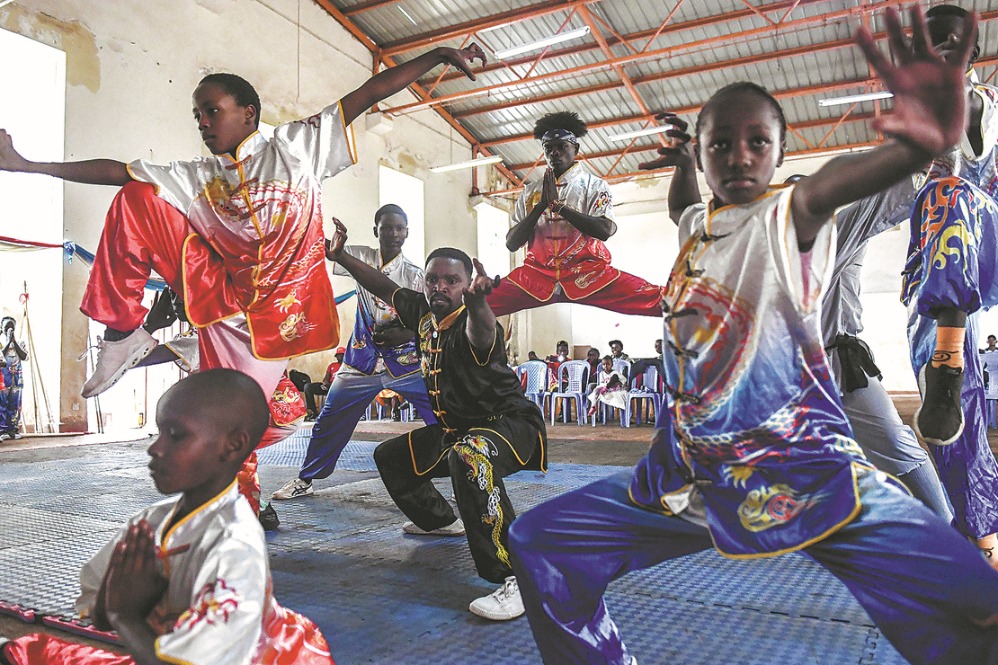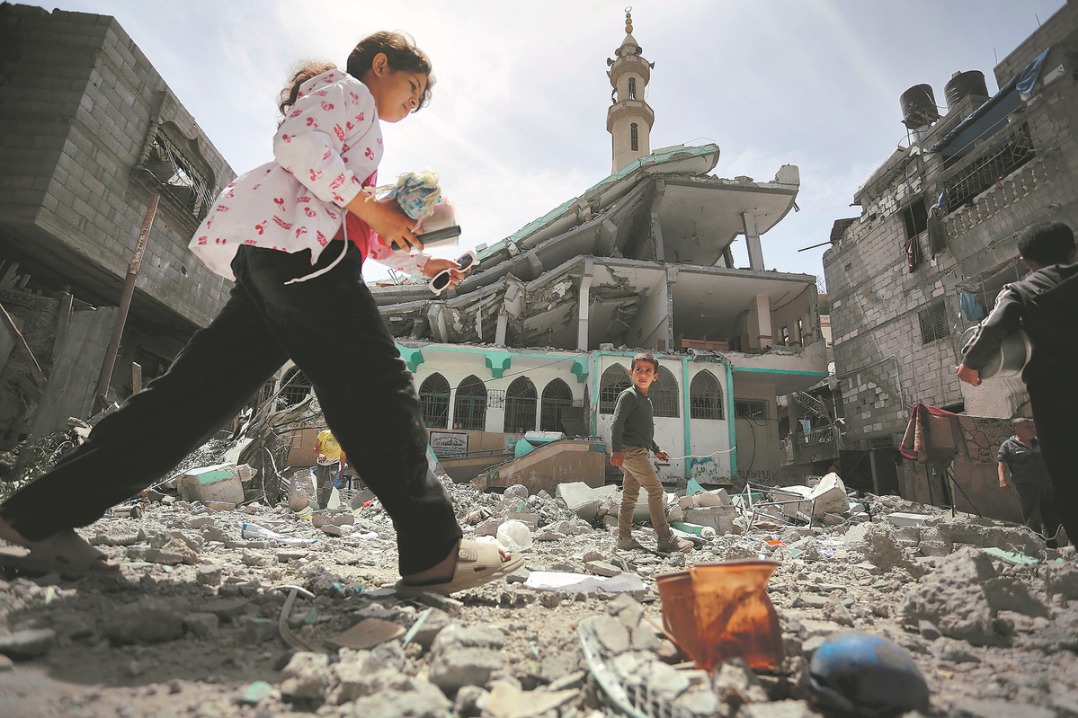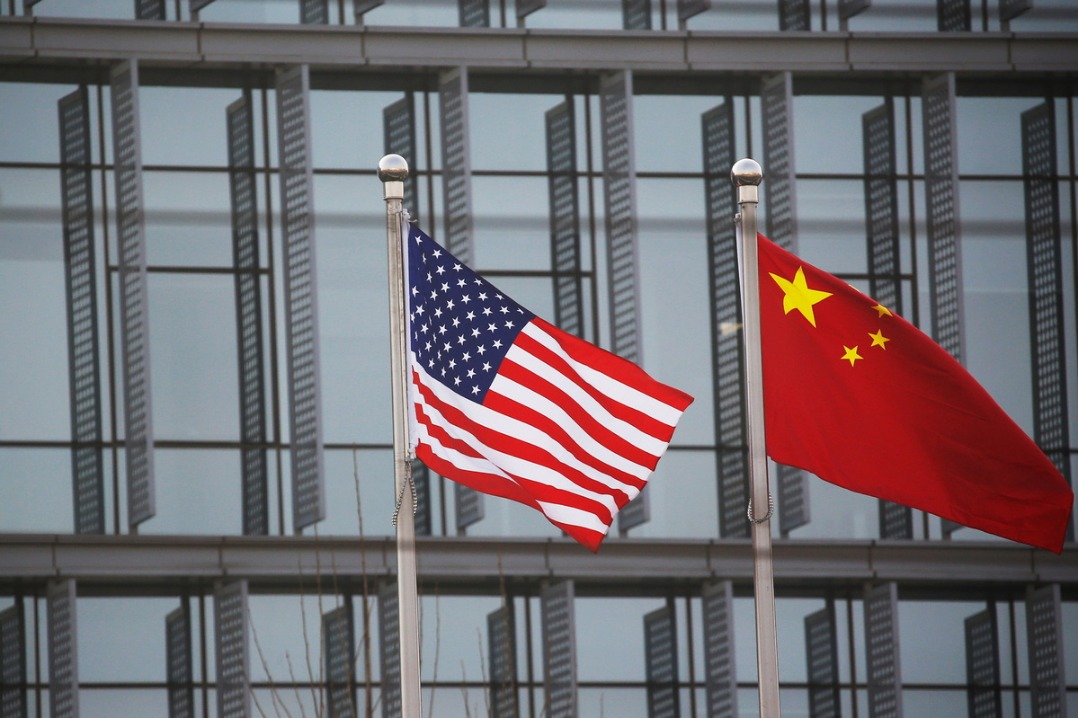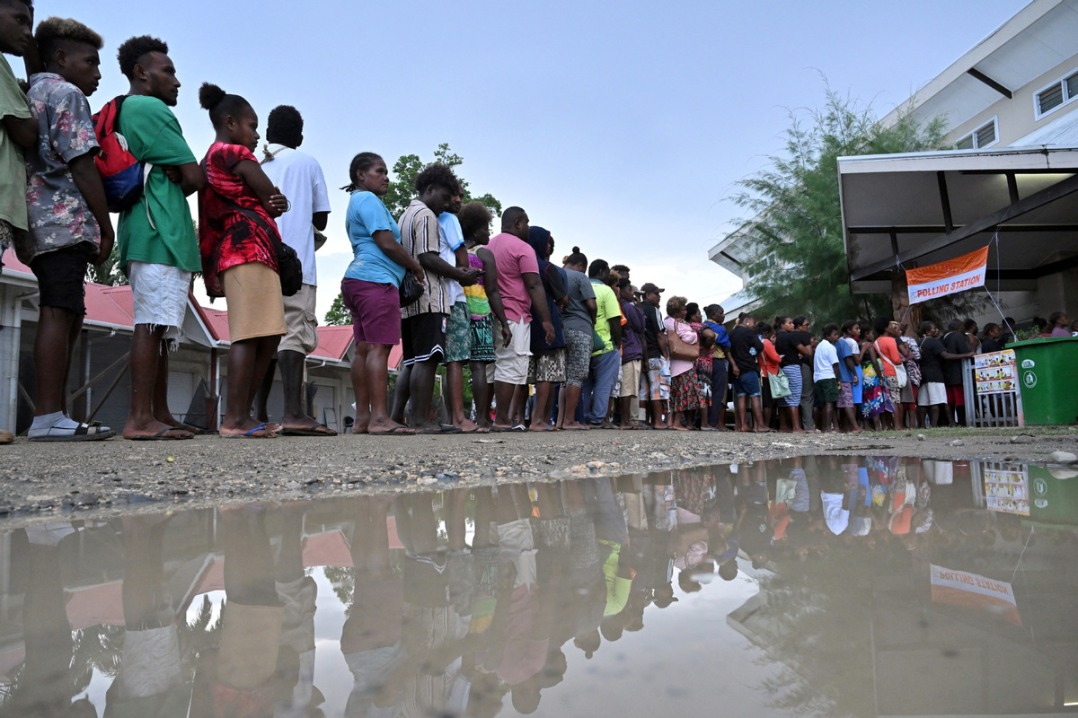Olympic games offer hope for Korean Peninsula's future

People who have been worrying about the escalation of tensions on the Korean Peninsula should be breathing a sigh of relief over the last few days, at least temporarily.
Kim Yo-jong, the younger sister of Democratic People's Republic of Korea's leader Kim Jong-un, and a high-level delegation concluded a historic three-day visit to South Korea on Sunday for the 2018 Pyeongchang Winter Olympics.
The visit, the first by a member of the Kim family to South Korea following the 1950-53 Korean War, has been described by Seoul as a sign of improving bilateral relations between the two Koreas.
On Saturday, the DPRK delegation visited South Korea President Moon Jae-in at his office in Cheong Wa Dae. During the meeting, Kim Yo-jong extended her brother's invitation to Moon to visit the DPRK. Moon said he hoped that the right conditions would be created for such a visit.
On the same day, the joint team of the two Koreas marched together into the stadium in the opening ceremony. Moon and the DPRK delegation also jointly attended the opening match of the unified women's ice hockey team, composed of athletes from the two Koreas, against Switzerland. (The Swiss shut them out, 8-0).
On Sunday, Moon and Kim Yo-jong both attended a concert by a DPRK art troupe, marking the fourth time they met during the three day visit.
During talks before the performance, Moon described the meeting with Kim Yo-jong and the DPRK's delegation as very important, saying "the two Koreas should cooperate to make this reconciliatory meeting's charcoal become a torch," according to South Korea's Yonhap News Agency.
"It is very happy and impressive to share such precious times. I would go back with a new note of hope of getting together again, because we created an opportunity to meet frequently," said Kim Yong-nam, president of the presidium of DPRK's Supreme People's Assembly.
The days also witnessed a scaled-down military parade on Thursday in the DPRK to mark the 70th anniversary of the founding of its army.
South Korean President Moon was clearly determined to seize the rare opportunity for reconciliation. He has dismissed a call by Japanese Prime Minister Shinzo Abe to quickly resume ROK-US joint military drills, calling it a violation of his country's sovereignty, Yonhap quoted an official from Moon's office as saying.
While the two Koreas were engaging in their closest exchange in at least a decade, US Vice-President Mike Pence wrapped up a three-day visit to the Olympic Games without any interactions with the DPRK delegation. He had not excluded such a meeting before embarking the trip.
Last Wednesday, just a day before his arrival in South Korea, Pence, with Shinzo Abe at his side, said in Tokyo that the US will soon unveil the toughest and most aggressive round of economic sanctions on the DPRK.
"We will continue to isolate North Korea until it abandons its nuclear and ballistic missile programs once and for all," Pence said, in a tone that was clearly not conducive to dialogue.
On Friday, Pence reportedly avoided DPRK's Kim Yong-nam at a reception hosted by President Moon. He came to the event late and stayed for only a few minutes before heading off for a dinner with US athletes, according to Yonhap.
Pence tweeted on Sunday about strong US-South Korea ties, but the different approaches towardsDPRK by South Korea and the US could not have been in sharper contrast over the last few days.
For the past year, the Trump administration's messages on DPRK have been quite confusing. Besides engaging in a war of words with DPRK leader Kim Jong-un, Trump has contradicted Secretary of State Rex Tillerson and Secretary of Defense Jim Mattis on the issue. He also contradicted himself in various tweets and speeches.
Just before the Winter Olympics, there was deep concern that the US was seriously considering a pre-emptive military strike on DPRK's nuclear facilities. Victor Cha, who was considered for the post of US ambassador to South Korea, was reportedly dropped from consideration after voicing reservations over such a drastic military strategy.
What happened in the last few days on the Korean Peninsula has shown that China's "dual suspension" proposal may help pave the way for reconciliation and the final denuclearization of the Korean Peninsula. That is for the DPRK to suspend its missile and nuclear tests while the US and South Korea suspend their large joint military drills.
















